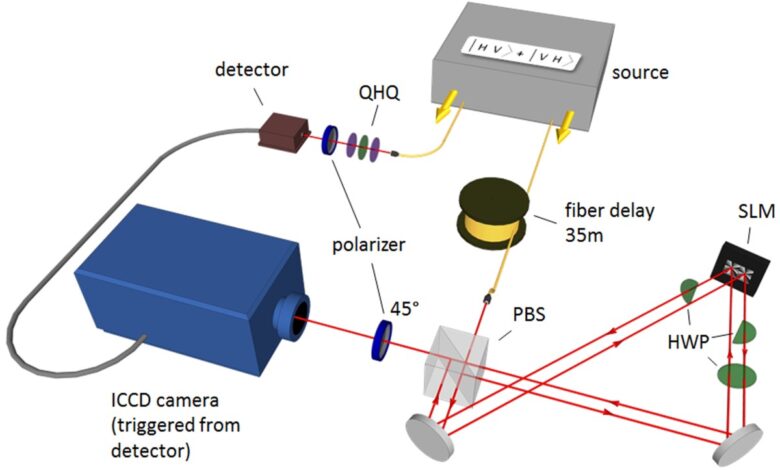Unveiling ICCD Lookup: A Fun Guide to Understanding and Using ICCD Data in 2024

Introduction: What’s an ICCD Lookup Anyway?
You might be scratching your head, thinking, “ICCD lookup? What on earth is that?” Well, buckle up because we’re diving into the world of ICCD, or Indexed Collection Content Directory, lookups. Although it may sound technical (and a little intimidating), ICCD lookups are pretty straightforward. In a nutshell, ICCD lookup involves searching for specific data within an indexed collection directory—think of it like a mini roadmap guiding you to exact data points in a massive sea of information.
In this article, we’ll break down ICCD lookups in a simple, no-nonsense way. We’ll explore what ICCD data is, why ICCD lookups matter, and how you can benefit from this knowledge, whether you’re a business analyst, database enthusiast, or just someone curious about the power of digital data. So, let’s get started, shall we?
1. What Exactly is ICCD?
1.1 Breaking Down the Basics: ICCD Explained
ICCD stands for Indexed Collection Content Directory. It’s a fancy way of saying, “a structured list that organizes content within a database.” Think of ICCD as an alphabetized phone book for databases. Every item in an ICCD directory has an index that makes it easier and faster to locate.
When we talk about an ICCD lookup, we’re talking about pulling specific data from this directory. This is essential when dealing with large databases, as it saves you from digging through thousands of data points. Instead, you just plug in a few keywords, and voilà—the ICCD lookup engine fetches your data in seconds!
1.2 Why Should You Care About ICCD Lookups?
Okay, so why should anyone care about ICCD lookups? Here’s the kicker—ICCD lookups streamline data retrieval. When information is indexed and organized in a collection directory, retrieving it becomes as easy as searching for a name on your contact list. Whether you’re managing customer data, tracking inventory, or overseeing company records, ICCD lookups can save time and hassle.
Let’s look at some reasons why ICCD lookups are a big deal:
- Faster Data Access: Lookups allow for quicker data retrieval, especially in large databases.
- Efficiency: ICCD systems improve efficiency, keeping data well-organized and accessible.
- Scalability: As data grows, ICCD lookup systems can expand without losing retrieval speed.
2. How Do ICCD Lookups Work?
2.1 The Process Behind ICCD Lookups
The whole ICCD lookup process is relatively straightforward. Imagine a massive library where each book is categorized by genre, author, and title. Now, if you need to find a specific book, wouldn’t it be easier to have a catalog where you can just look it up by name? ICCD lookups work in much the same way. Here’s how it generally goes:
- Data Gets Indexed: First, the content in the database is indexed based on certain characteristics.
- Query is Entered: A query is input to search for specific indexed data.
- ICCD Lookup Fetches the Data: The lookup algorithm quickly scans the directory and retrieves the requested data.
2.2 Key Components of ICCD Lookup
An ICCD lookup isn’t just a simple search; it involves several essential components:
- Index: The index is the foundation of an ICCD system, enabling quick access to various data points.
- Lookup Algorithm: This is the actual search mechanism that scans the index to find the right data.
- Database: Naturally, a structured database is essential for storing and organizing data in the first place.
3. Practical Uses of ICCD Lookup
So, who uses ICCD lookups? Turns out, ICCD lookup isn’t just for tech experts. Here’s a glimpse at where ICCD lookups come into play:
- Customer Relationship Management (CRM): Managing client databases is crucial in CRM. ICCD lookups make it a breeze to retrieve client data like contacts, order history, or payment records.
- Inventory Tracking: In retail or manufacturing, keeping track of inventory is key. ICCD lookups simplify the process, providing quick access to stock levels and item details.
- Finance & Auditing: Financial institutions rely heavily on data accuracy and organization. ICCD lookups help in retrieving transaction data or client information swiftly.
4. Benefits of ICCD Lookup for Businesses
Still wondering what ICCD lookups offer that’s so special? Here are some real benefits:
- Increased Productivity: No more wasting time on endless database searches.
- Accuracy in Data Retrieval: ICCD lookups reduce errors by fetching precise information.
- Cost-Effectiveness: By streamlining data management, ICCD lookups save resources.
4.1 Real-World Example: ICCD Lookup in Action
Imagine a sales department with thousands of client records. Without ICCD lookup, every search would be like looking for a needle in a haystack. However, with ICCD indexing, a quick lookup by client name or order ID brings up the exact record in seconds. This not only saves time but reduces the risk of error!
5. How to Perform an ICCD Lookup
5.1 Steps to Perform an ICCD Lookup
Here’s a quick guide on performing an ICCD lokup:
- Define Your Query: Start by specifying the data you want to retrieve.
- Enter the Query in the Lookup Field: Most systems have a lookup field where you can type the query.
- Run the Lookup: Hit search, and let the ICCD system do its magic!
- Review the Results: Verify that the results match what you need.
6. Common Challenges in ICCD Lookup
Despite its benefits, ICCD lokup isn’t perfect. Here are some common challenges:
- Compatibility Issues: Some systems may not support all databases.
- Data Volume: Extremely large datasets can slow down ICCD performance.
- Accuracy in Indexing: If the data isn’t properly indexed, ICCD lokups can yield poor results.
7. Frequently Asked Questions about ICCD Lookup
Q1: Can ICCD lookup be used with any database?
Not exactly. ICCD looups work best with structured, indexed databases. Compatibility varies depending on the software.
Q2: Is ICCD lookup hard to set up?
Not usually! Most modern database systems come with built-in ICCD functionality, making it easy to configure.
Q3: Do ICCD lookups require special software?
Some databases include ICCD lokup features, but specific software might be needed for custom applications.
Q4: How can I speed up ICCD lookups in large datasets?
Consider improving indexing practices, optimizing the database structure, or using faster lookup algorithms.
Q5: Is ICCD lookup secure for sensitive data?
Yes, as long as the database is secure and encrypted, ICCD lokups don’t expose data to unauthorized users.
Conclusion
ICCD lookups may sound technical, but they’re simply about making data easy to find and use. Whether you’re managing customer contacts or overseeing a vast inventory, ICCD lokup ensures that you can access information quickly and accurately. From saving time and resources to reducing errors in data retrieval, ICCD looxt time you need data at the click of a button, remember: ICCD looup has got you covered!



